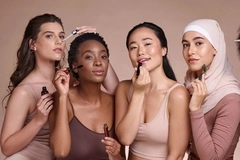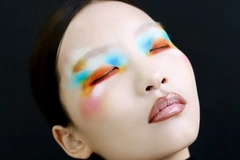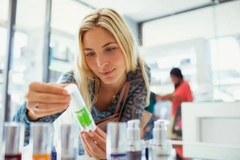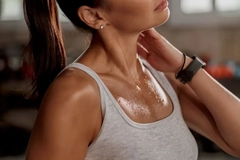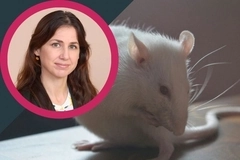October in review: Industry giants’ clean beauty collaboration, Kering sells to L’Oréal, SEPAWA Congress 2025
Key takeaways
- Beauty leaders unite to push for standardized, science-backed “clean beauty” definitions.
- Kering sells its beauty division to L’Oréal for €4 billion (US$4.66 billion).
- SEPAWA Congress 2025 spotlights sustainable surfactants as key drivers in hair care innovation.
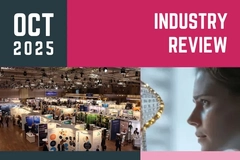
In industry news last month, a coalition of beauty leaders collaborated to highlight the need for standardized “clean beauty” through transparent, science-backed data.
Kering agreed to sell its beauty division to L’Oréal for €4 billion (US$4.66 billion). In other business developments, Kenvue reportedly considered selling or spinning off its skin health and beauty division.
Personal Care Insights spoke to multiple industry leaders on the show floor of the SEPAWA Congress 2025 in Berlin, Germany, and found that ecological surfactants are one of the most talked-about ingredients for hair care innovations.
Meanwhile, the European Parliament’s legal committee agreed to weaken the Corporate Sustainability Due Diligence Directive to boost business competitiveness.

Human-derived cosmetics: “Wild West” between innovation and regulation
An increasing number of cosmetics are using human-derived ingredients, but experts cautioned that research and safety regulations are lagging behind. Exosomes, for example, are emerging as a breakthrough ingredient in skin care, promoted as a next-generation anti-aging solution. We spoke with a dermatologist and a Health Canada representative to explore how these products function within regulatory gray areas that could result in future safety risks.
EU lawmakers ease corporate sustainability law sparking accountability anxieties
The European Parliament’s legal committee voted to further dilute the EU’s Corporate Sustainability Due Diligence Directive, describing the move as an effort to boost the competitiveness of European industries. The decision is part of a broader push to streamline Europe’s green regulations but has drawn criticism for potentially undermining the law’s effectiveness. Opponents warn that, if adopted, corporate responsibility could be reduced to a “toothless box-ticking exercise.” (7).webp) Hagen Döring from Provital told us about its active hair care ingredient CoverTrix.
Hagen Döring from Provital told us about its active hair care ingredient CoverTrix.
Social stigmatization of skin conditions: La Roche-Posay reveals mental toll of eczema and scars
La Roche-Posay revealed that conditions like eczema and scarring have a “profound” psychological impact, leading to low self-esteem, social stigmatization, and exclusion. The dermocosmetic brand surveyed 30,000 adults across 27 countries to investigate how scars and skin conditions are “not just a dermatological issue,” but also a mental health one. Dr. Delphine Kerob, international scientific director, told us about the emotional toll of skin conditions and how beauty brands can help reduce stigma and support mental well-being.
Kenvue considers skin health and beauty division sale amid financial decline
It was reported that Kenvue was considering selling or spinning off its skin health and beauty division, amid declining sales and health allegations tied to Tylenol. The global consumer health company had a turbulent year marked by financial losses, leadership changes and investor pressure. The unit includes brands such as Neutrogena, Aveeno, and Clean & Clear. There is reported interest in Neutrogena and Aveeno. Analysts reported that the division could be valued between US$6–9 billion.
US surpasses China as K-beauty’s top market amid record-breaking exports
South Korea’s cosmetics exports hit a record US$8.52 billion in the first nine months of 2025, up 15.4% from last year. The US overtook China as the top market, with skin care leading the growth. Exports surged 17.6% in Q3, fueled by global demand and market expansion, marking the longest growth streak in the industry’s history. Officials attributed the K-beauty momentum to strong overseas demand and market diversification. Korean beauty products were also shipped to 205 countries, the widest reach ever recorded. (6).webp) Brenntag discussed the company’s strong focus on sun care.
Brenntag discussed the company’s strong focus on sun care.
Kering sells beauty unit to L’Oréal for €4 billion
Kering agreed to sell its beauty division to L’Oréal for €4 billion (US$4.66 billion) in a move to refocus on its core fashion brands. The acquisition gives L’Oréal ownership of luxury fragrance brand Creed and exclusive licenses to develop and distribute future beauty and fragrance lines for Gucci, Bottega Veneta, and Balenciaga. Alongside the sale, the major beauty companies announced a long-term partnership in luxury beauty and wellness.
SEPAWA Congress 2025: Hair care is “all about bubbles” as sustainable surfactants trend
Mild and eco-friendly surfactants took the spotlight at SEPAWA Congress 2025, emerging as key drivers of sustainable hair care innovations. We spoke with experts from Clariant, Innospec, Symrise, and Syensqo, who highlighted a growing focus on scalp health and microbiome-friendly formulations.
Beauty industry giants collide for cosmetic safety to end “historical lack of collaboration”
A coalition of beauty leaders — including Sephora, Ulta Beauty, and Credo Beauty — revealed that while 76% of cosmetic ingredients are verified as safe, 24% remain uncharacterized. We spoke with ChemForward about its new report and the growing need for greater transparency and innovation across the beauty industry. “Despite its widespread adoption and significant market presence, the term ‘clean beauty’ lacks a single, universally accepted or legal definition,” Heather McKenney, science and safer chemistry lead at ChemForward told us.
Women shea processors’ livelihoods suffer after Nigeria’s export ban backfires
Nigeria’s ban on raw shea nut exports severely impacted women’s livelihoods. The August ban was enacted immediately to help the country become a global supplier of refined shea butter. However, the move caused a collapse in nut prices and reduced market access for the women who rely on the trade for their livelihoods. The Global Shea Alliance told us there is a need for inclusive dialogue, investment in processing capacity, and short-term protections to ensure the transition strengthens livelihoods and sustainability. (5).webp) Seppic spoke about Celtosome Eryngium Maritimum, at SEPAWA Congress 2025.
Seppic spoke about Celtosome Eryngium Maritimum, at SEPAWA Congress 2025.
Menopause and mental health: Health & Her identifies innovation gap
Health & Her revealed that mental symptoms take a greater toll on women’s well-being during menopause than physical ones. The female health and wellness company showed that mood and sleep-related symptoms during menopause significantly increase the risk of cognitive decline in the years that follow. We spoke with CEO Kate Bache, who advocates for the personal care industry to focus on science-backed solutions that address the overlooked emotional and cognitive aspects of menopause.
